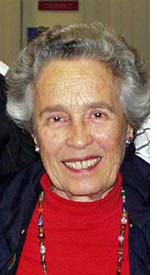
LA JOLLA, California — If music can soothe the troubled heart, the music of Shabbat may be particularly effective with its prayer chants for peace, for healing, and for the departed.
The next Treasures from the Music Collection of the Astor Judaica Library program will feature the Music of Shabbat and will take place Thursday afternoon, October 19, 2-3:30 p.m. in the Astor Judaica Library. Selections to be heard will be from the Shabbat liturgy, the zmirot sung around the Shabbat table, and a chant from the Grace after meals. To register, visit: https://my.lfjcc.org/13354/13356
I will serve as moderator and my two guests will be Simone Abelsohn, Shabbat San Diego Manager for the JCC and Karin Niederland Turett, daughter of Cantor Paul Niederland, who will be heard in one of the recorded selections.
The program will include the voices of Jan Peerce, who was considered the greatest tenor of his day; Cantor Paul Niederland, German-born cantor, who officiated at Temple Beth El in Utica, N.Y.; Cantor Joseph Malovany, Israeli-born cantor for New York’s Fifth Avenue Synagogue; and Max Helfman, choral director, composer and educator at the Brandeis-Bardin Institute and the University of Judaism.
The playlist will reflect the many varieties of Sabbath music, from the Niggunim of the Chassidim, the cantorial embellishments of the great cantors, the Zmirot after the Sabbath meals, to the American influences in the music of Debbie Friedman, Joshua Nelson, and Sam Glaser. It will also include prayers for peace such as Shalom Rav and Sim Shalom; the prayer for healing, Mi Sheberach; the prayer for the departed, El Malei Rachamim; and the prayer for the State of Israel, Avinu Shebashamayim.